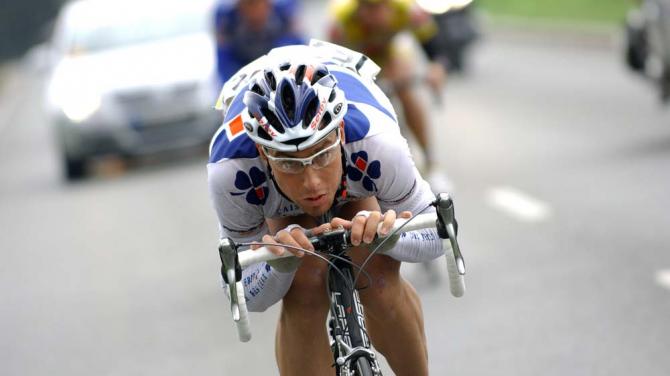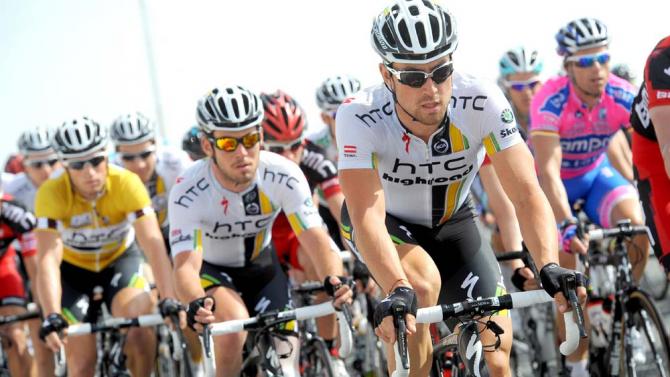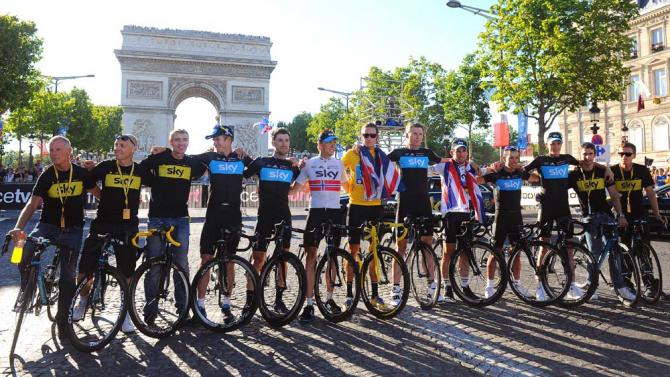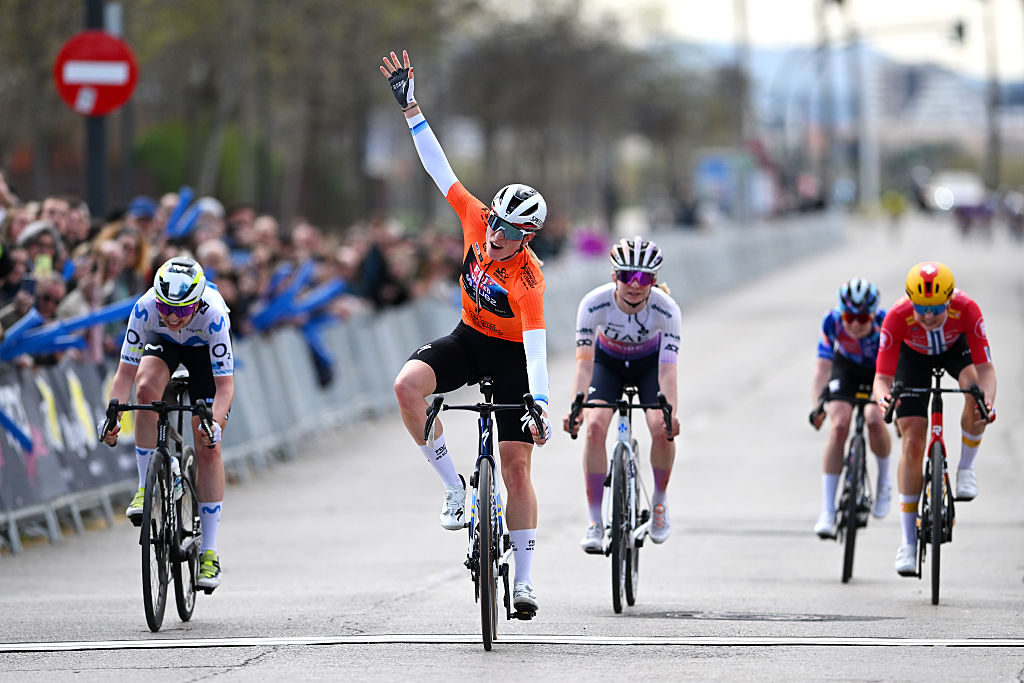The loyal lieutenant: Through the years with Bernhard Eisel
Austrian looks back on his time in some of the peloton's biggest teams
The latest race content, interviews, features, reviews and expert buying guides, direct to your inbox!
You are now subscribed
Your newsletter sign-up was successful
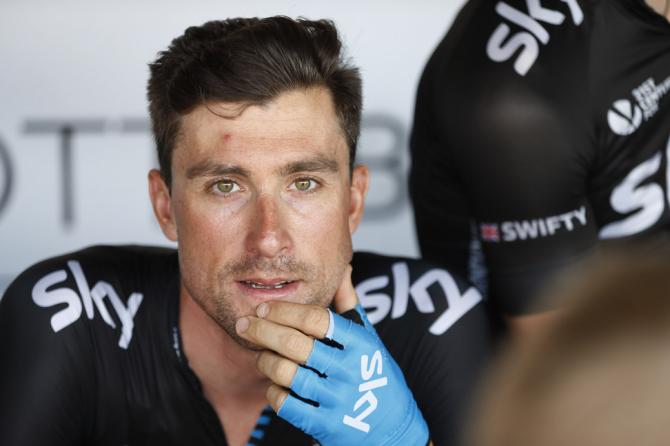
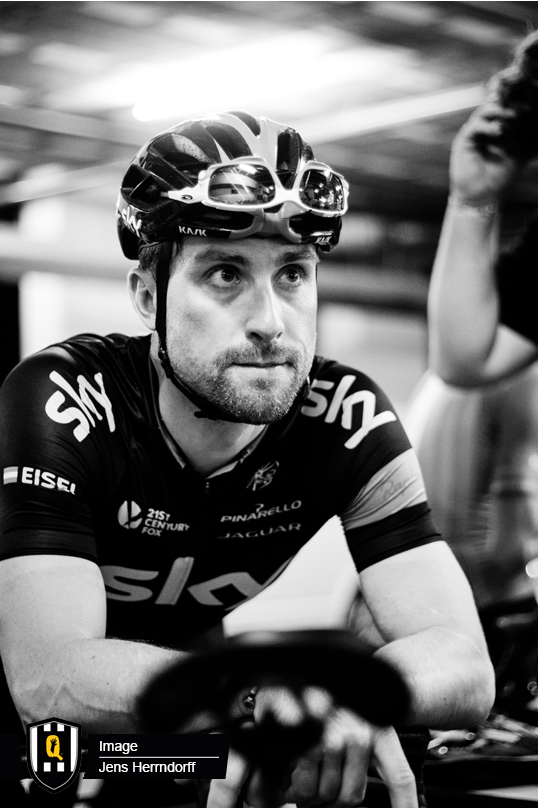
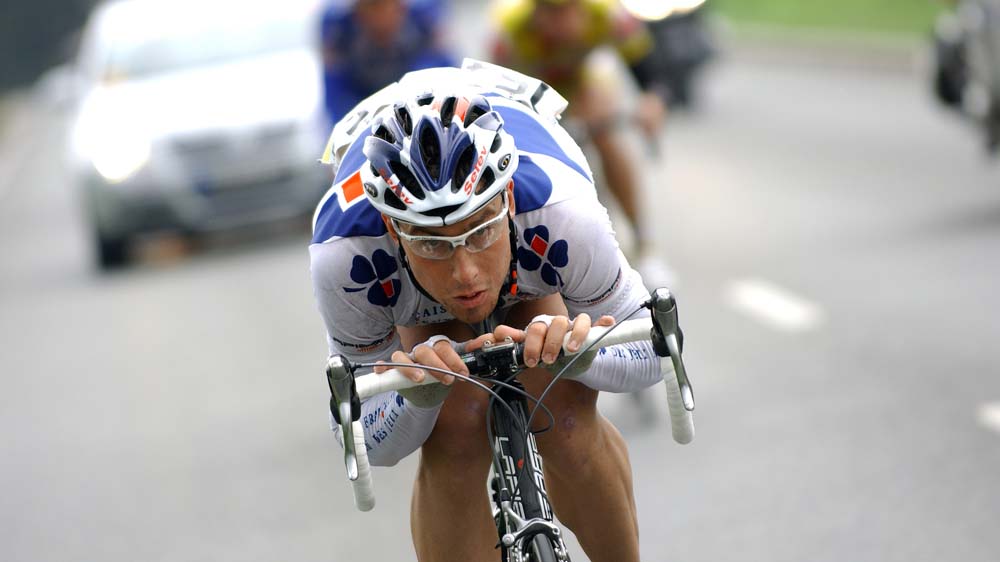
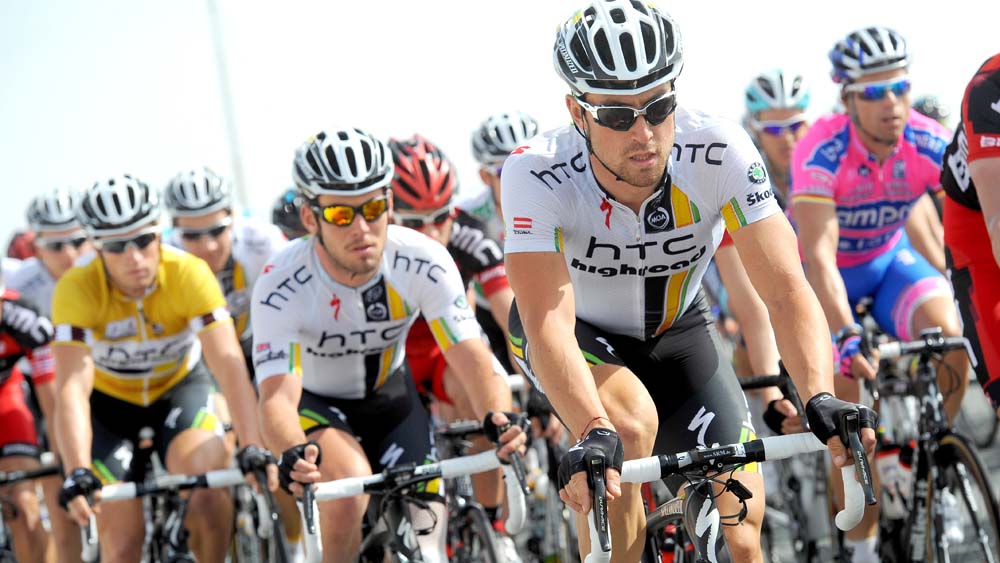
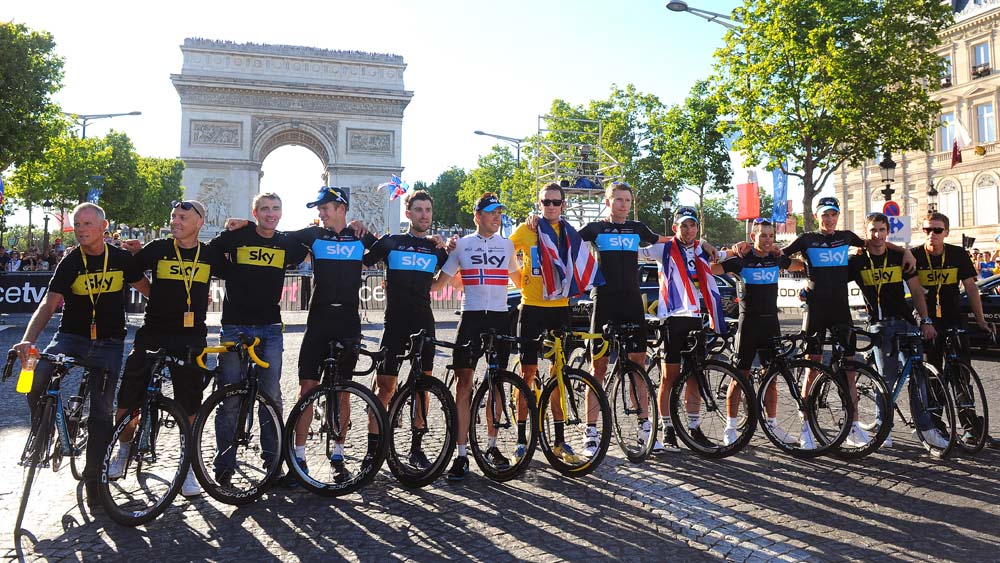
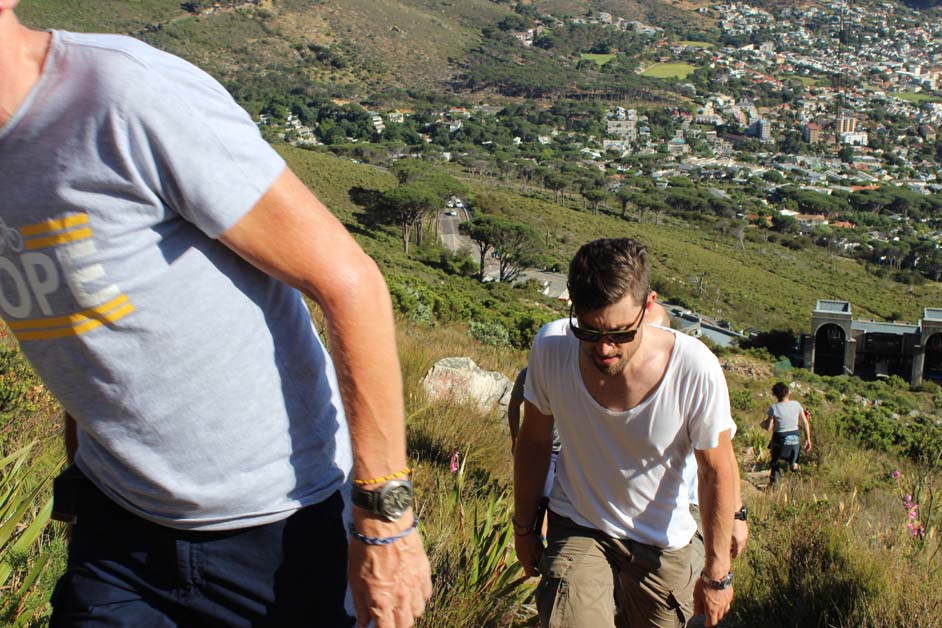
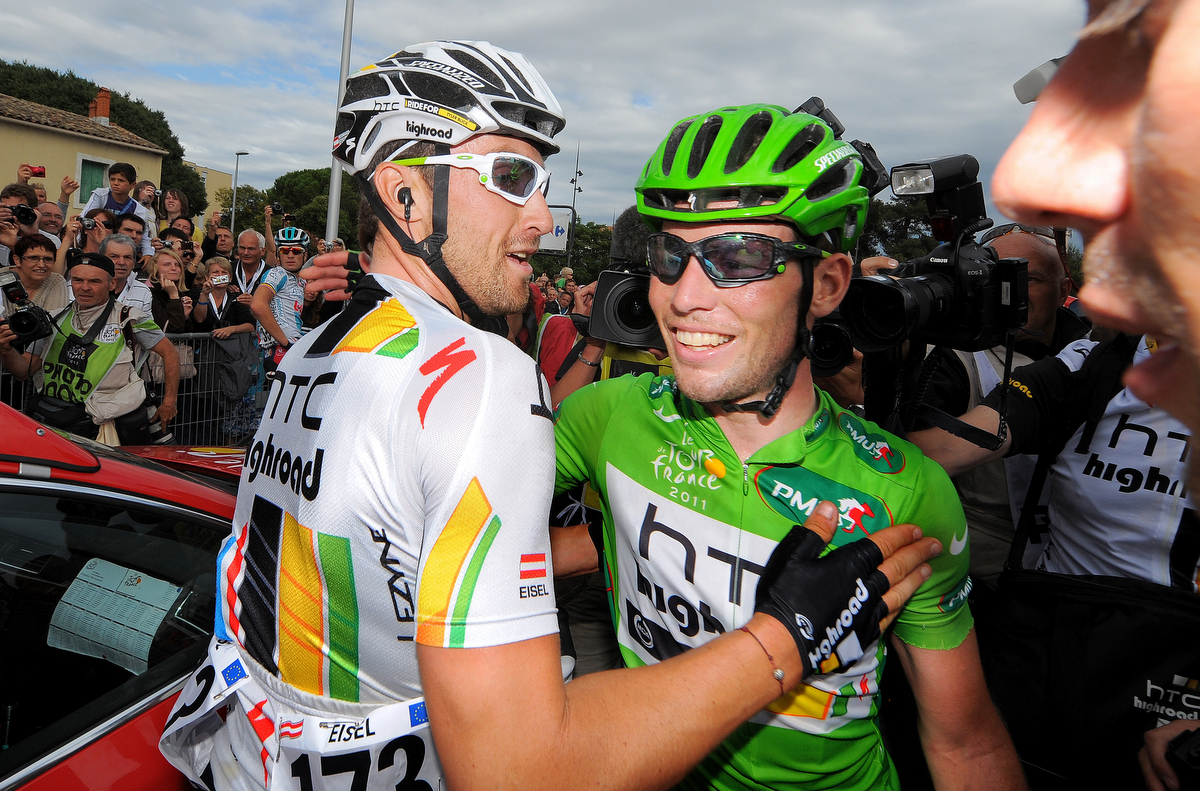
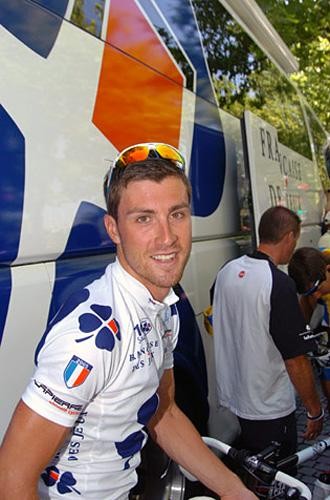
Bernhard Eisel is about to begin the next step in his career as he links up with his former teammate Mark Cavendish at Dimension Data (formerly MTN-Qhubeka).
Eisel has had a lengthy career after turning professional in 2001 with Mapei-QuickStep alongside Fabian Cancellara and Michael Rogers. Since then, his career has taken him to some of the world's best teams, where he has helped the likes of Mark Cavendish and Bradley Wiggins to stage wins and Grand Tour success respectively.
Cyclingnews sat down with Eisel at Dimension Data's training camp in November as he talked us through turning professional, working with Marc Madiot, and trying to save the HTC-Columbia team.
It was the best and the biggest team in the world. When you look back, no other team won more than Mapei and back in the day they had a dream and a vision. They had a young rider group and pretty much all of them made a breakthrough and most of them are still out there racing.
I was quite a good junior and Pippo Pozzato helped me quite a lot in getting a contract at Mapei-QuickStep. I did the tests and then they said, 'we'll sign you straight away.' Giorgio Squinzi [former head of Mapei] had said that they weren't going to sign any more than 40 riders, and I was the 41st. The best part was, that I got a phone call about eight o'clock at night and they said, 'we have good and bad news for you.' The good news was that I had a two-year deal with Mapei, and the bad news was that they were meeting at nine the next morning for their first team training camp. I had to drive all the way from Austria. It was an exciting drive, even if I was a bit tired. I didn't sleep a minute that night and I slept even less when I got there.
I was only 19 when we had that first training camp. It was crazy, you would turn up at a training camp and you were riding with Johan Museeuw and when Johan left there was still Oscar Freire and Michele Bartoli. In my second year we had fewer riders, maybe 38 and we were split into two teams - the senior and the under 23 team.
The latest race content, interviews, features, reviews and expert buying guides, direct to your inbox!
It was one of the first teams with a bus. It's common sense now but back in the day nobody else had a bus. They had a full set-up, they had the test centre and the Mapei test centre still exists now and a few of the best pros are still there. What now is standard, then it was new and over the top. No other team would have had the money to provide it.
When the team folded at the end of 2002 everyone was really disappointed.
My move to FDJ was pretty much at the last minute. I signed at the end of September, beginning of October. I'd had quite a good season at Mapei, I finished second in Paris–Corrèze and a few other races but there were so many other riders on the market. It was the only team that was really interested.
I've always lived in Austria, even as a junior when I was racing in Italy, but Madiot said I had to move to France. In the end, I got around that because I trained well so I asked him to let me stay in Austria and he agreed to it. Nothing against France but I didn't speak a word of French when I signed the contract and I had just got a new apartment back at home.
I had done a few classics before but that year was my first real contact with all the classics. I got the chance to ride the Giro and pretty much got everything I wanted. I was racing with Fred Guesdon and he taught me everything I know about the classics. I had signed a relatively small contract but I had a good classics season and a strong Giro so I ended up signing a new contract. After one and a half years Marc Madiot extended my contract again and increased the money.
I have to say, Madiot was one of the… you can call him crazy, he is crazy, and I think he knows it but he's a humble person and I have the biggest respect for him. He treated all the riders like they were his kids. He could have the biggest problems with you because you weren't training enough but if you had trouble then he was always there. He helped his riders and he would always defend his riders to the last man.
He is a bit old-school but he has changed a lot over the years. With Fred Grappe and, Thibaut's brother, Julien Pinot, and even with the help of [bike supplier] Lapierre, they have changed and started looking into aerodynamics and training. He's also changed. He still loves the European programme and the French races and he will always do the French Cup races. He knows what the heart of Francaise des Jeux needs. It was always a big family. From the off, you knew everybody and it didn't matter what time of the day you had to call someone they were there.
T-Mobile/HTC-Columbia (2007-2011)
I had been in contact with T-Mobile a few times before but they were changing everything. T-Mobile was growing in Austria and they were looking for an Austrian rider and we just came back together at the perfect moment. They offered me a very good contract so I decided it was time.
It was a completely different team to what they had been before. It was the first big change for T-Mobile, and they became totally international and when Rolf Aldag and Bob Stapleton took over there were no Germans left, no German language at the table. Bob and Rolf definitely brought in new ideas, especially Bob. He was a proper businessman, one of the hardest businessmen I've ever met and when you look back he was great at getting contracts with riders. He didn't have the money but when someone was injured the money was always there. It was never an issue to help a rider come back.
We, the riders, just enjoyed it. We had created this team with all these riders, and they did a lot of research into who could be a potential talent, and we worked around that. It was phenomenal. We had other teams asking 'who is going to win today from you guys?' I remember going to the Tour de Suisse [in 2009 – ed] and everyday it was pretty much another guy winning.
They were talented and driven by the success that we were having. It didn't matter who won, we just raced together. It was crazy. Since joining Dimension Data everyone has been saying that we're just going to have to pull on the front like back in the HTC days. If we look back, we won about 70 races in one year and Mark Cavendish won about 20 of those, so there is plenty of opportunity for the other guys. It's not always about one guy. We knew that we were riding for one guy but that guy wasn't always Cav, and that worked out very well.
It was so disappointing when it came to an end in 2011. We actually had a new sponsor to replace HTC. It was so late and many riders had already left and found new contracts but then we got this new sponsor and we were just waiting for the ink on the paper. We started to call riders again to say that the team was coming back and then just three hours later we had to call the same guys again and say that it wasn't happening.
I was helping the guys to phone the riders and I remember getting the phone call from Rolf when he said that they had turned it down. I couldn't believe it. The whole thing was like this giant rollercoaster.
I couldn't really understand why it had happened. Columbia is a big brand but it is mainly based in America, but HTC was on the way to being one of the leaders in mobile phones so for them it was a surprise. For HTC it was like the best investment ever. We should all have a share in HTC.
I had an offer from Team Sky when HTC folded but I asked Dave Brailsford to give me a little bit more time to make my decision to see if we could save it. As soon as it folded I rang up Dave and asked if the team would still offer me a contract and he offered me exactly the same contract as before. That's why I have a lot of respect for Dave, because he was always a gentleman to me.
Dave was the guy with the biggest vision in cycling, he doesn't sleep and he hates losing. We were used to working with Sebastian Weber (former coach at HTC now at Cannondale-Garmin) but when we got there, I think they spent more on the team camp than other teams. It was a new level of everything. I've always said that I train hard but when I came to Team Sky I realised what it really meant to train hard. We had a lot of meetings but I never had a problem with that. I like when things are clear. There was a vision behind it and it always got bigger year-by-year.
I used to love all the stories that people would come up with about the team. I was at a dinner in Italy recently and someone came up to me and said, 'so you're all vegans at Team Sky, you don't eat' and I'm like I'm getting fat every year. There are so many rumours that surround the team. We just laughed. In the end it's just a normal cycling team with normal people. Of course Chris Froome can't be a normal person because for him to go for lunch it's not like when I go for lunch. He has a hard life and to commit every year and to be on top is something that you have to be born for.
When Cavendish left at the end of 2012, I decided not to go with him. I probably would have ridden the Tour but I wouldn't have learned what I did from Dave at Etixx-QuickStep. I had many friends at Team Sky and even my wife is friends with many of the girlfriends of the riders. I had everything that I needed and we'd just won the Tour, which is why I didn't want to leave the team but for myself I knew that Sky would be the better choice than to leave for Etixx-QuickStep.
Sometimes I think that I'm stupid to have left Team Sky because I had a nice offer for two more years and I could have possibly worked in the team after my career.
Dimension Data (2016 - ?)
I decided to leave Team Sky and join Dimension Data because I had one more opportunity to race together with Cav and it was now. I see it as a new project. I'd had a few phone conversations with Doug before they signed a new sponsor and he said, 'if we sign the sponsors then you’re the first man that we sign'.
We're riding for a greater cause, and to develop young riders and that’s what I see myself doing. Of course I'd love to win Paris-Roubaix once in my life but at the same time it would be great to help someone like Reinardt Janse van Rensburg to one of the classics. In 10 years' time I can see that he'll be there fighting for top positions and I've got the experience to help. I've worked with Fred Guesdon, Mick Rogers, Chris Froome and Bradley Wiggins, so I've worked with guys who've achieved everything you can achieve and I know why they were there and how they got there.
I want to be someone who can help them when they need it. I don't want to be the grandfather that tells them stories but I want to be a good example. It was the same with Luke Rowe, I tried to teach him everything I could and he got better than me, which is what I want to see. I'm getting older and they are the up and coming stars.
Especially with Dimension Data, it is something special because we can really change a life. An African team in the WorldTour with African riders, it's big. It will be a process over the next years as they develop new talent.
Born in Ireland to a cycling family and later moved to the Isle of Man, so there was no surprise when I got into the sport. Studied sports journalism at university before going on to do a Masters in sports broadcast. After university I spent three months interning at Eurosport, where I covered the Tour de France. In 2012 I started at Procycling Magazine, before becoming the deputy editor of Procycling Week. I then joined Cyclingnews, in December 2013.
